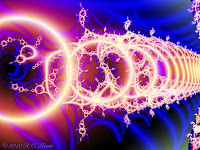speculative fiction
Genrefication
One of my co-workers (an English teacher) has a serious addiction to books. I know a lot of us think we do, but I’m telling you, most of us don’t have anything on this friend of mine. In the past year, I believe she’s spent thousands of dollars on books … frequently at bargain prices.
Yeah, it’s a lot of books.
That’s okay, though, because it means our students have more access to current MG and YA novels than they would otherwise.
She moved into a different classroom this year, so it was a great excuse for getting organized. One day last week, she asked me and another teacher who reads a lot of MG/YA (the other math teacher, ironically) to come over during lunch and help her figure out the sub-genres for the fantasy and science fiction.
It was a fascinating experience. And really hard at times.
Some books I was already familiar with and could immediately declare as steampunk, urban fantasy, or paranormal (we meant largely paranormal romance, but left “romance” off the label so as not to scare the teenage boys away). Some books I could just glance at the cover art and/or title and could guess what it was, then checked the back cover to verify.
Those back covers are where a few less-obvious books gave us trouble. Some looked like a hybrid of more than one thing. Others fell somewhere in-between two genres. For instance, some were clearly high fantasy, others clearly urban fantasy, but there were some that didn’t seem “high” enough for high or “urban” enough for urban. What are they? We ended up with a “just plain fantasy” category, which didn’t quite satisfy me.
I also felt like Terry Pratchett should have a section all his own. If she’d had more books of his, I might’ve insisted.
I’ve critiqued queries before where the writer needed feedback on narrowing down the genre, and it hasn’t usually been that hard. Maybe it’s due to a fundamental difference between queries and cover blurbs. Even though they’re similar and we’re advised to use the same mind-set when writing queries, they serve slightly different purposes. Some cover blurbs are much more teasing, with much less revealing detail than a query will often have.
So when someone says you need to clearly identify your genre, it’s not just so the publisher knows where to shelf your book. It’s so hyperorganized English teachers can categorize it, too.
Do you have any rules of thumb for identifying the many flavors of sci-fi and fantasy? Any favorite genre-breaking examples?
P.S. Our moment of shame that afternoon: We couldn’t figure out where to place A Wrinkle in Time. It seems like I must have read it once, but it was when I was too young (and read too large a volume of books) to remember details. And her copy had no blurb.
*crawls under rock*
Speak up:
7 commentsBook-Nerds vs. Science-Geeks
Jul
11, 2011 |Filed in:
audience,fantasy,geeks,nerds,science fiction,speculative fiction,YA fictionThis is one that’s been on my mind for a while. While labeling individuals is rarely productive, I often ponder certain categories or types (recognizing the variability within any given category). So first, let’s define our terms.
A book-nerd is pretty straightforward—someone who loves books. They devour books, possibly spending more on them than they do on food. Generally, book-nerds are somewhat eclectic in their tastes, sampling everything from literary fiction to romance to horror to non-fiction. They worship the written word.
A science-geek (and for the sake of this post, I’m going to include math-geeks, even though they don’t always coincide) is analytical, loves technology, and wants to know how everything around them works. They are often (but not always) big readers as well, possibly to the same extend as many book-nerds.
In fact, there is some overlap between the two groups. I know some science-geeks who are definitely book-nerds. What I want to talk about is another subset of the geeks—those who do read, but don’t qualify as book-nerds.
These are people who read voraciously, but probably don’t have much interest in Shakespeare, Dickens, or anything else considered classic. Probably not much in the field of literary fiction, either. Doesn’t mean they don’t appreciate literary qualities, but more often than not, they’ll be reading (you guessed it) science fiction and fantasy.
What’s important to these readers? For one thing, consistency in all aspects. Heaven help you if you commit a continuity error. For another, worlds and characters worth coming back to—thus the ubiquitous serial nature of the genres. They also want what every other reader wants—a good story with proper development.
It seems like the YA publishing industry is dominated by book-nerds. That’s okay, and probably as it should be. After all, they need to make their living on books, so it’s best if they love them, preferably in wide variety. But sometimes I wonder if even agents who rep the speculative fiction genres are part of the book-nerd/science-geek overlap and don’t necessarily get the straight-up science-geek readers.
It’s kind of like the film industry. Traditionally, a sci-fi or fantasy movie will only get respect for effects, makeup, costumes, and maybe music. Some people assume that the fans don’t care about good screenwriting or acting as long as there are enough explosions. So the budget goes toward effects and explosions. Character development is glossed over. The end result might make money, but gets little respect.
There is a place for science-geeks in the world of literature, though. And I’m always excited when I find an excellent book that speaks to that part of me (rather than the book-nerd part … I’m an overlapper in some respects). I’m always on the lookout for more. Books that use sci-fi or fantasy elements as more than window dressing, but still have a great story at the core.
Got any recommendations?
